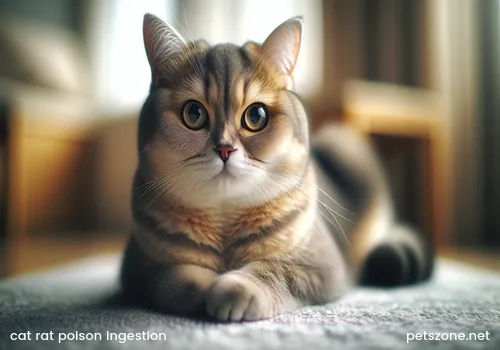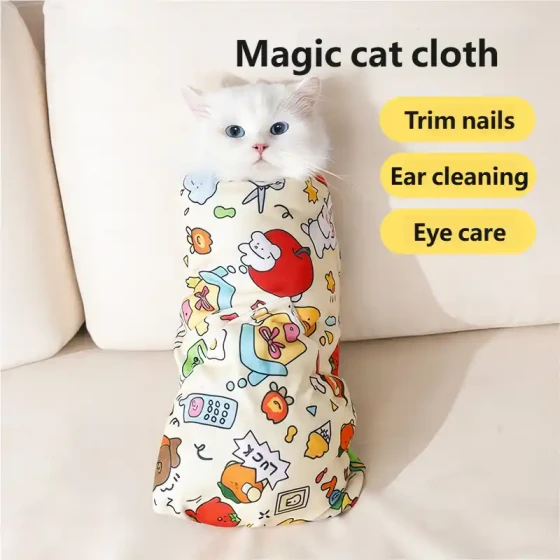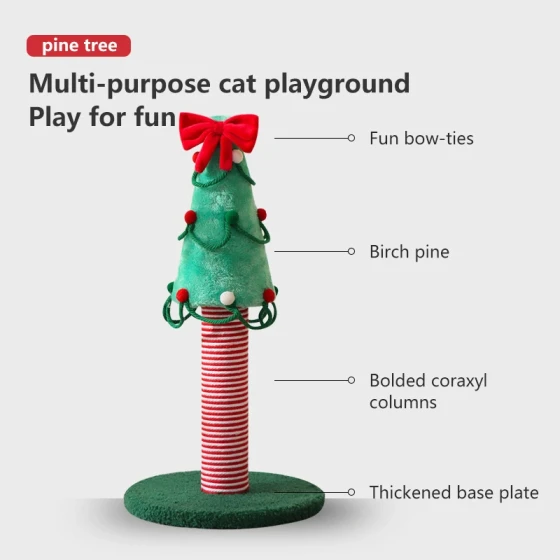Can Cats Recover Themselves After Eating Rat Poison_Fatal Dangers of Mistaken Rat Poison Ingestion by Cats and Emergency Measures
Can cats recover themselves after accidentally ingesting rat poison? This is an urgent matter concerning the life and safety of cats. To be clear, after cats ingest rat poison, it is almost impossible for them to recover on their own; the situation is very critical and immediate professional veterinary treatment is necessary. Rat poison is highly toxic to cats, and even a tiny dose may lead to severe health problems or death. Waiting for the cat to recover on its own is equivalent to giving up precious rescue opportunities.

Rat poison is designed to efficiently kill rodents, so its ingredients are often highly toxic. These toxic ingredients pose an even more deadly threat to small-bodied cats. There are many types of rat poison, commonly including anticoagulants, bromethalin, cholecalciferol, etc. Different types of rat poison have different mechanisms of action but all cause serious damage to cats’ bodies. For example, anticoagulant rodenticides interfere with cats’ blood clotting function, causing internal bleeding. Bromethalin is a neurotoxin that affects the nervous system, leading to brain swelling. Cholecalciferol (vitamin D3) toxicity causes abnormally high calcium and phosphorus levels in cats, resulting in kidney failure.
Fatal Dangers of Mistaken Rat Poison Ingestion by Cats
The main ways cats get poisoned by rat poison are either direct ingestion of the poison or by preying on rodents that have ingested the poison, referred to as "secondary poisoning." Regardless of the route, toxins enter the cat’s body and cause serious harm.
The severity of rat poison's harm to cats depends on multiple factors, including the type of poison ingested, dosage, the cat’s weight, and health status. Due to their small size, even a small amount of rat poison can cause poisoning in cats.
Common symptoms of cat rat poison poisoning vary depending on the type of poison.
- Anticoagulant Rodenticide Poisoning Symptoms: Symptoms usually do not appear immediately and may be delayed for days or even weeks. A poisoned cat may show weakness, drowsiness, pale gums, unexplained bruising or bleeding, nosebleeds, vomiting blood, bloody stools or urine, difficulty breathing, swollen joints, etc. This is due to bleeding caused by clotting function impairment.
- Bromethalin Rodenticide Poisoning Symptoms: Symptoms may appear within a few hours of ingestion or be delayed 1 to 4 days. Symptoms may include muscle tremors, ataxia (unsteady walking), paralysis, seizures, hyperthermia, uneven pupil size, abnormal eye movement, depression, and other neurological signs.
- Cholecalciferol (Vitamin D3) Poisoning Symptoms: Even low doses of cholecalciferol can cause poisoning. Symptoms may include drowsiness, vomiting, loss of appetite, increased thirst, increased urination, weight loss, and in severe cases kidney failure and death.
If your cat shows any of these poisoning symptoms, be highly vigilant and seek veterinary care immediately.
Emergency Measures After Cats Ingest Rat Poison
When you discover your cat has ingested rat poison or suspect poisoning signs, every second counts. Never assume the cat can handle it by itself. Scientific first aid and professional veterinary treatment are crucial for saving the cat’s life.
Step One: Remain Calm and Act Immediately!
Rat poison ingestion is an emergency requiring immediate action. Contact the nearest pet hospital or veterinarian as soon as possible. Describe your cat’s condition, including the possible type of rat poison ingested (if known), approximate ingestion time, and symptoms shown.
Step Two: Bring the Rat Poison Packaging If Possible
If you can find the rat poison packaging your cat ingested, be sure to bring it to the pet hospital. Information on the packaging (such as ingredients, manufacturer, etc.) is vital for the veterinarian to determine the poisoning type and tailor the treatment plan.
Step Three: Follow the Veterinarian’s Professional Instructions
While on your way to the hospital, you may consult the vet about initial first aid measures at home. Remember, do not attempt to induce vomiting by yourself without veterinary guidance, especially using hydrogen peroxide or other methods, as this may cause further damage to the cat’s esophagus and stomach. Only a veterinarian can safely and effectively perform emesis or gastric lavage.
Step Four: Transport the Cat to the Pet Hospital as Soon as Possible
The earlier the cat arrives at the hospital, the higher its chances of survival. The veterinarian will take appropriate treatment measures based on the cat’s condition.
Professional Treatment at the Pet Hospital
Upon arrival at the pet hospital, veterinarians will diagnose and treat based on the cat’s symptoms and the information about the ingested rat poison.
Common treatment approaches include:
- Removing the toxin: If the ingestion time is recent (usually within a few hours), the veterinarian may induce vomiting or perform gastric lavage to clear the stomach of poison. Following this, activated charcoal may be given to the cat to adsorb any remaining toxin in the digestive tract.
- Use of antidotes: Not all types of rat poison have specific antidotes. For anticoagulant poisonings, vitamin K1 is an effective antidote. Veterinarians administer vitamin K1 either by injection or orally, and treatment may last for several weeks. Other types of poisons may lack specific antidotes, relying mainly on symptomatic and supportive care.
- Supportive therapy: Poisoned cats may require intravenous fluids to maintain hydration and electrolyte balance and help eliminate toxins. If anemia or clotting dysfunction occurs, blood transfusions may be needed. Additionally, the vet may provide other supportive treatments for specific symptoms such as controlling seizures or relieving brain swelling.
Note that treatment for rat poison poisoning can be complex and costly, depending on severity, treatment plan, and hospitalization duration. However, such investment is worthwhile for your cat’s life and safety.
Preventing Cats from Ingesting Rat Poison
Rather than panic after cat poisoning, it is better to take preventive measures to minimize the risk of rat poison ingestion.
- Store rat poison properly: If rat poison must be used at home, keep it inaccessible to cats, preferably in high places or locked cabinets.
- Use safe rodent control methods: Choose pet-safe rodent control methods such as physical traps (sticky boards, snap traps) or place rat poison in bait stations inaccessible to cats.
- Regularly clean up dead rodents: If rat poison is used, regularly check and promptly remove poisoned dead rats. Cats may prey on poisoned rodents, causing secondary poisoning.
- Limit cats’ outdoor access: If possible, keep cats indoors to reduce their exposure to outdoor rat poison or poisoned rodents.
- Stay vigilant: Monitor if there are any rodent control activities in your neighborhood, understand what poison types are used, and take corresponding precautions.
- Educate family members: Inform family, especially elders and children, of the dangers of rat poison and proper storage and use, as well as emergency handling if the cat ingests poison.
Common Questions and Answers
Q1: How soon will symptoms appear after a cat eats rat poison?
A: Timing depends on the type and amount ingested. Symptoms of anticoagulant poisoning may be delayed for days or weeks. Other types can show symptoms within hours to days.
Q2: Is it harmful if a cat ingests a small amount of rat poison?
A: Even small amounts can be toxic to small cats. Regardless of the dose, prompt veterinary care is essential.
Q3: How to tell if a cat has ingested rat poison?
A: Besides witnessing ingestion, poisoning symptoms such as unexplained bleeding, weakness, vomiting, or seizures are important clues. If you suspect exposure or predation on rodents, consult a vet even if no symptoms are apparent.
Q4: How much does treatment for cat rat poison poisoning cost?
A: Costs vary depending on the poisoning severity, treatment (such as transfusions or hospitalization), and local pricing. Costs may range from a few hundred to several thousand yuan or more.
Q5: Are there any “special antidotes” that can be used at home for cats?
A: Do not trust so-called "special antidotes"; any self-medication without veterinary guidance may worsen your cat’s condition or delay treatment. Professional veterinary care is a must.
Conclusion
Cat ingestion of rat poison is extremely dangerous and you must not rely on the cat to recover by itself. All types of rat poison are highly toxic to cats, potentially causing internal hemorrhage, nervous system damage, organ failure, or death. If you find or suspect that your cat has ingested rat poison, remain calm, immediately contact a professional pet hospital, and get your cat treated as soon as possible. Timely veterinary intervention and symptomatic treatment are key to saving your cat’s life. At the same time, taking preventive actions such as properly storing rat poison, using safe rodent control methods, and limiting cats’ outdoor exposure are the best ways to avoid such tragedies.
References
- Poisoning Due to Ingesting Rat Poison in Cats - Symptoms, Causes, Diagnosis, Treatment, Recovery, Management, Cost - Wag!
- Rat Poisoning in Cats | PetMD
- How Long Does It Take for a Cat to Die After Eating Rat Poison? - NetEase
- Rat Bait Poisoning (Rodenticide Toxicosis) in Cats - Causes, Treatment and Associated Conditions - Vetster
- What to Do if a Cat Eats Toxic Rat Poison - Cute Pets Park
- What to Do if Your Cat Eats Rat Poison | Paidog Pet Chain
- The Dangers of Rat Poison to Dogs and Cats - Pet Health Network
- Rodenticide Poisoning (Rat Bait Poisoning) - Perth Cat Hospital
- Symptoms Of Rat Poisoning In Cats | Dutch
- Poisons in Cats | PetMD
- How to Rescue a Cat After Rat Poison Ingestion - Bull Pharmaceuticals
- Dangers of Overfeeding Cats Liver - Bull Pharmaceuticals (Note: This source has low direct relevance, mainly about clotting disorders as background knowledge)
- What To Do If Your Cat Eats Rat Poison? A Vet Explains - Cats.com
- What To Do If Your Pet Accidentally Eats Rat Poison
- What are the risks to my cat or dog from rat bait? - RSPCA Knowledgebase
- Cat Zinc Phosphide Rat Poisoning - Bull Pharmaceuticals
- Does Rat Poison Harm Pets?
- My cat ate rat poison, what should I do? Is my cat in any danger? - Quora
- Henan Pet Training on Cat Symptoms After Eating Rat Antidote: Can Cats Recover After Eating Rat Poison - ShouYiTong
- Rodent Poison Risks for Dogs and Cats - Dômes Pharma
- Is it Harmful if Cats Eat Dirty Rats? Why Modern Cats Are No Longer Suitable for Catching Rats? - Tencent News
- Anticoagulant Rodenticide Poisoning in Dogs and Cats - Sina Site Navigation
- Why Is My Cat’s Gum Bleeding? - Chong Yi Sheng Pet Hospital (Note: This source has low direct relevance, mainly about coagulation disorder symptoms as background knowledge)
- Rodenticide Poisoning (Anticoagulant) in Cats - Causes, Treatment and Associated Conditions - Vetster
- What Happens if a Human Eats Rat Poison? - Verywell Health
- Essential Knowledge Sharing About Cat Blood Transfusions - Pet Doctor Net (Note: This source has low direct relevance, mainly about blood transfusion treatment as background knowledge)
- Which Rat Poisons Have Less Impact on Cats and Dogs? - Kaifeng Plank Biochemistry Co., Ltd. (Note: Limited information, background knowledge)
- Importance of Coagulation Panel Testing in Animal Health Assessment (Note: Low direct relevance, background on coagulation testing)
- Anticoagulant Rodenticide Harm to Non-Target Wildlife | Call for Environmentally Friendly Practices - The Paper (Note: Mentions cat poisoning cases)
- Common Rat Poisoning Emergency and Medication -- Zinc Phosphide Poisoning - JD Internet Hospital (Note: Mainly human-related but some principles apply)
- FAQ on House Mouse Prevention - Taipei City Environmental Protection Bureau (Note: Provides rodent control methods and ingestion advice)
- Vector Biology Prevention Q&A - Xuancheng Health Commission (Note: Mainly human-related, some treatment info)
- New Methods for Rodent Control: Poison Mouse Houses "On Duty" - Yueqing Municipal Government (Note: Use and precautions of poison mouse houses)
- Municipal Agriculture Bureau Reminds to Do Spring Rodent Control - Enping Municipal Government (Note: Lists some rodenticide types and precautions)
- Urgent Warning on Highly Toxic Rat Poison - News - Sohu (Note: Distinguishes acute and chronic rat poison)


-560x560.webp)
